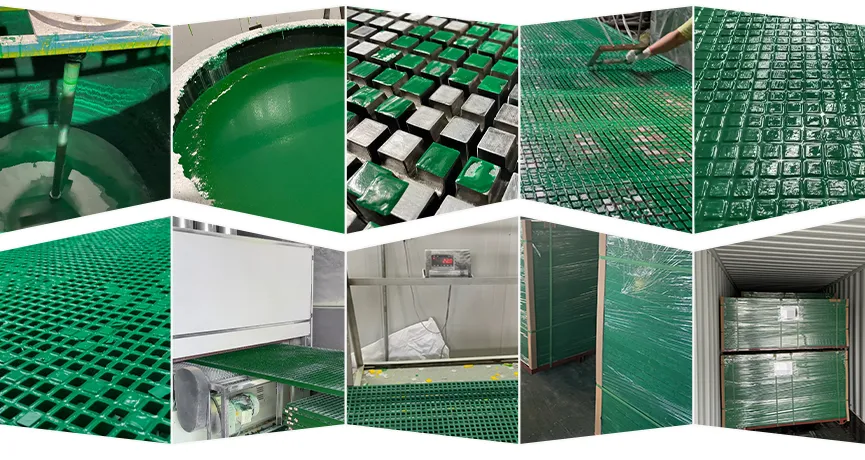loading...
- No. 9, Xingyuan South Street, Dongwaihuan Road, Zaoqiang County, Hengshui, Hebei, China
- admin@zjcomposites.com
- +86 15097380338
- Welcome to visit our website!
Innovative Applications and Benefits of Fiberglass Grating in Modern Construction
Fiberglass Grating A Versatile Solution for Modern Applications
Fiberglass grating has emerged as an essential material in various industrial, commercial, and residential applications, thanks to its unique properties and benefits. Composed of fiberglass reinforced plastic (FRP), fiberglass grating offers an impressive combination of strength, durability, and corrosion resistance, making it an ideal choice for environments that are harsh or chemically aggressive.
One of the primary advantages of fiberglass grating is its lightweight nature compared to traditional materials like steel and aluminum. This reduced weight not only makes it easier to handle and install but also helps in minimizing transportation costs. The ease of installation and maintenance is particularly beneficial in sectors such as construction, where time and labor costs are critical factors.
Corrosion resistance is another significant benefit of fiberglass grating. Traditional metal grating can rust and degrade when exposed to harsh chemicals, moisture, or saline conditions. In contrast, fiberglass grating is inherently resistant to a wide range of chemicals and environmental conditions. This makes it an excellent choice for industries such as wastewater treatment, chemical processing, and marine applications, where exposure to these elements is common.
The strength-to-weight ratio of fiberglass grating is impressive, allowing it to support heavy loads while remaining lightweight. This feature enables its use in various applications, including walkways, platforms, and stair treads, where load-bearing capacity is critical. Furthermore, fiberglass grating comes in various configurations, including molded and pultruded types, allowing for customization based on specific project requirements.
fiberglass grating

Another noteworthy feature of fiberglass grating is its slip resistance. Many manufacturers offer products with a textured surface, significantly reducing the risk of slips and falls in potentially hazardous environments. This trait enhances safety, especially in wet or greasy settings common in many industrial facilities.
In addition to its functional benefits, fiberglass grating can also be aesthetically pleasing. It is available in various colors and finishes, allowing it to integrate well into a variety of architectural designs. This versatility makes it suitable for applications that extend beyond industrial uses, including commercial buildings, public spaces, and even residential projects.
Sustainability is becoming an increasingly important consideration in material selection, and fiberglass grating fits the bill. Many products are designed with eco-friendly manufacturing processes and can be recycled at the end of their life cycle. This aspect aligns well with the growing demand for sustainable building materials in the construction industry.
In conclusion, fiberglass grating is a highly adaptable and beneficial material suitable for a wide range of applications. Its strength, durability, corrosion resistance, and safety features make it a preferred choice across numerous industries. As technology advances and the demand for innovative materials continues to grow, fiberglass grating is poised to remain at the forefront of engineering solutions, contributing to safer and more efficient infrastructures.
-
Transform Your Spaces with FRP Grating SolutionsNewsNov.04,2024
-
The Versatility and Strength of FRP RodsNewsNov.04,2024
-
The Excellence of Fiberglass Water TanksNewsNov.04,2024
-
The Benefits of FRP Grating for Your ProjectsNewsNov.04,2024
-
Elevate Your Efficiency with FRP Pressure VesselsNewsNov.04,2024
-
Welcome to the World of FRP Pressure VesselsNewsOct.12,2024
-
Unveiling the Future of Filtration: Why FRP Filter Vessels are a Game ChangerNewsOct.12,2024
